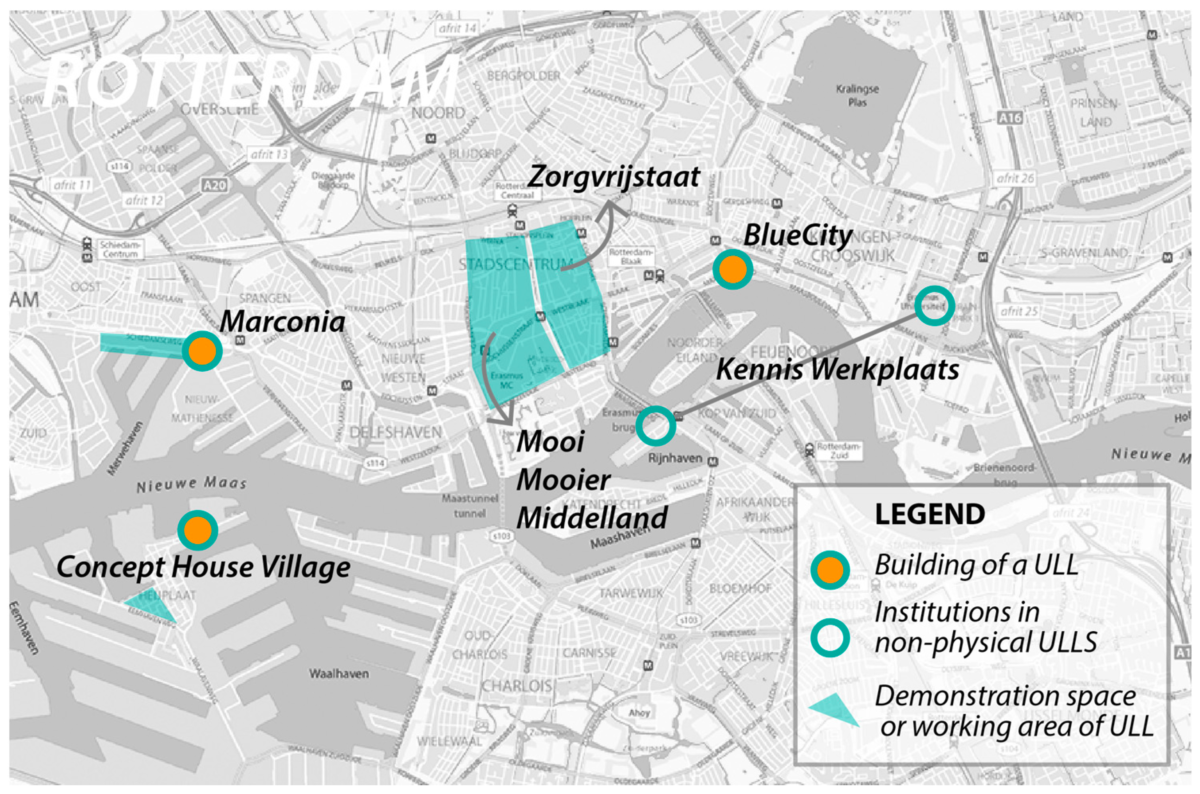Abstract
“Citizens and urban policy makers are experimenting with collaborative ways to tackle wicked urban issues, such as today’s sustainability challenges. In this article, we consider one particular way of collaboration in an experimental setting: Urban Living Labs (ULLs). ULLs are understood as spatially embedded sites for the co-creation of knowledge and solutions by conducting local experiments. As such, ULLs are supposed to offer an arena for reflexive, adaptive, and multi-actor learning environments, where new practices of self-organization and novel (infra-) structures can be tested within their real-world context. Yet, it remains understudied how the co-creation of knowledge and practices actually takes place within ULLs, and how co-creation unfolds their impacts. Hence, this paper focuses on co-creation dynamics in urban living labs, its associated learning and knowledge generation, and how these possibly contribute to urban sustainability transitions. We analyzed empirical data from a series of in-depth interviews and were actively involved with ULLs in the Rotterdam-The Hague region in the Netherlands. Our findings show five distinct types of co-creation elements that relate to specific dynamics of participation, facilitation, and organization. We conclude with a discussion on the ambivalent role of contextualized knowledge and the implications for sustainability transitions.”
Full article: Puerari, E., de Koning, J., Karre, P., von Wirth, T., Mulder, I., & Loorbach, D. (2018). Co-creation Dynamics in Urban Living Labs. Sustainability, 10(6):1893. https://doi.org/10.3390/su10061893. Special issue on Putting Sustainability Transitions into Spatial and Socio-Cultural Context.

